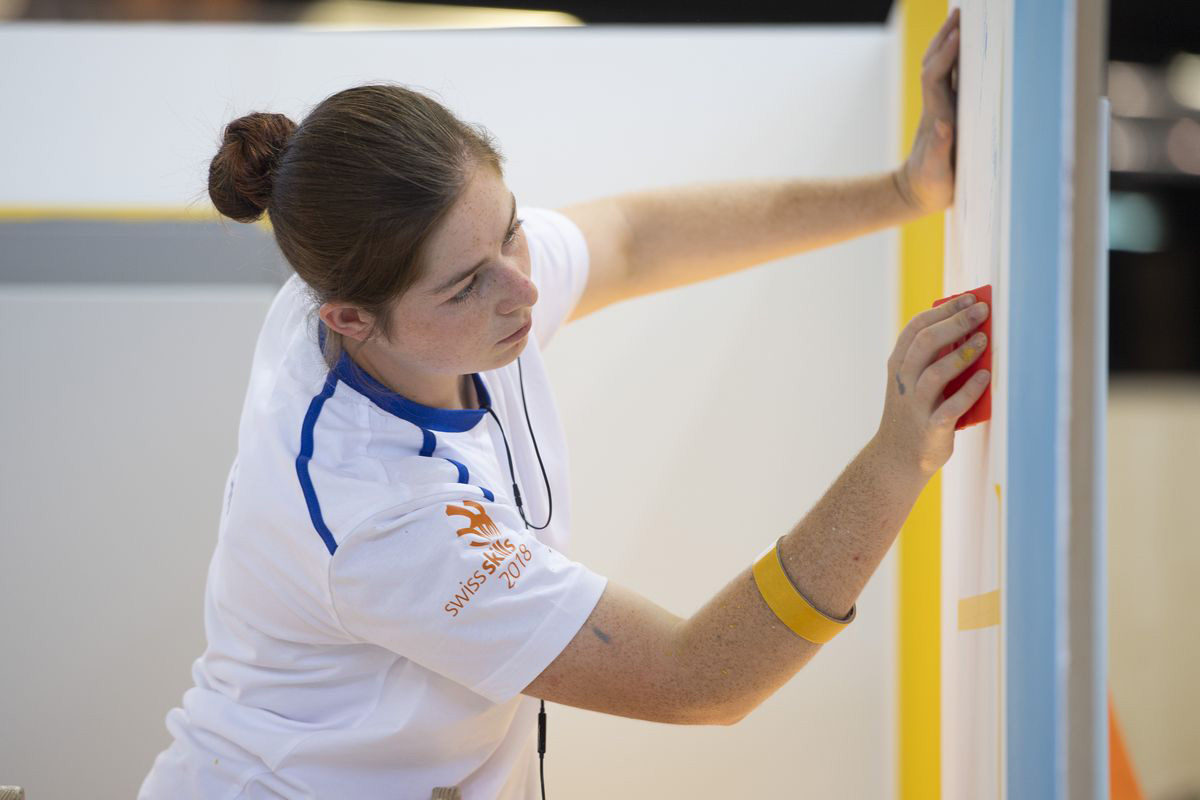Experiencing and sampling dual vocational training
Experiencing and sampling dual vocational training
SwissSkills 2018 in Berne
Dr iur. Marianne Wüthrich
From 12 to 16 September 2018, the Swiss Skills Championships took place in Berne. 66 professional associations and organisations from the world of work took part, and Swiss championships were held in 75 professions. Here in the competition, young professionals were able to impressively show what they had learned.
However, the aim of this major event was not only to test the strength of the best. It was equally important to the professional associations that young people, future apprentices, were given a first impression of 135 skilled trades. After nine or ten years at school, i.e. at the age of 16, the majority of young people in Switzerland start an apprenticeship. The interest in SwissSkills was correspondingly high: tens of thousands of pupils travelled to Berne with their teachers – with a train ticket for a maximum of 20 francs and free admission – and took the great opportunity to have young professionals show them their work and to try out individual activities themselves.

“Switzerland’s dual vocational training system is unique”
“Switzerland’s dual vocational training system is unique. Young professionals prove this time and again at Swiss, European and World Championships in all professional fields”. With these words, SwissSkills underlines the high significance of dual vocational training in Switzerland.1 The outstanding achievements are the fruits of a three- or four-year apprenticeship in which the young people are guided and thoroughly trained personally – and with pleasure – by their professional instructors, and this is supplemented by a good technical and general education at the vocational schools. In addition to the top performers at championships, dual vocational training is also a blessing for all other apprentices and one of the supporting pillars of the Swiss business location: “Switzerland works, thanks to vocational training. Two-thirds of all young people in the German-speaking part of Switzerland start their professional careers with vocational training,” says Rudolf Strahm, one of the tireless interpreters of the formative role of dual vocational training for individuals and society.2
Pride in the profession and in one’s own achievements
Recently, the Swiss tabloids “Blick” and “20 Minuten”, which are read by many youngsters, gave apprentices the opportunity to express their joy and pride in their work and professions.3 By the way, these are not just a few positive coincidences: In my time as a vocational school teacher, I was impressed by each class anew as to how the 16 year olds mastered the big step from school into working life almost without exception, despite an earlier start to the day, a longer working day and new challenges, as to how they felt at home in their profession and training company within a few months – and how proud they were of their own achievements and their first salary.
Let us take good care of our dual apprenticeship system and of our younger generations
Let us stop complaining about other countries having more high school graduates and academics! Let us not be unsettled by Avenir Suisse and the OECD, which say that this will lead to worse prospects for our business location. These organisations do not primarily represent the 500,000 SMEs in which a large proportion of our young men and women complete an apprenticeship and become responsible adults who take their place not only in the workplace but also as citizens (which is of particular importance in direct-democratic Switzerland). According to the Federal Statistical Office (FSO), more than 99% of private companies in Switzerland are SMEs, i.e. companies with fewer than 250 employees; they account for two thirds of jobs and offer the majority of training places. We do not need a higher proportion of high school graduates, but a primary school in which the children are introduced to learning and to the real world by their teachers, so that they will leave school with a full backpack. Every vocational trainer can tell us what knowledge, skills and personal attitude a young person must have in order to successfully start and complete an apprenticeship. Almost the same prerequisites are needed for high school, by the way, only with more weight in the school sector. •
1 <link https: www.swiss-skills.ch>www.swiss-skills.ch/2018/
2 Rudolf Strahm, “Warum wir so reich sind” (Why we are so rich). Tages-Anzeiger from 11 September 2018
3 “Nichts gegen die Stifti! Porträt über vier Lehrlinge” (Say nothing against apprenticeships! Portrait of four apprentices). Blick from 16 August 2018. “Newcomer to an apprenticeship: ‘In the beginning I had aching muscles’”. 20 minutes from 31 August 2018